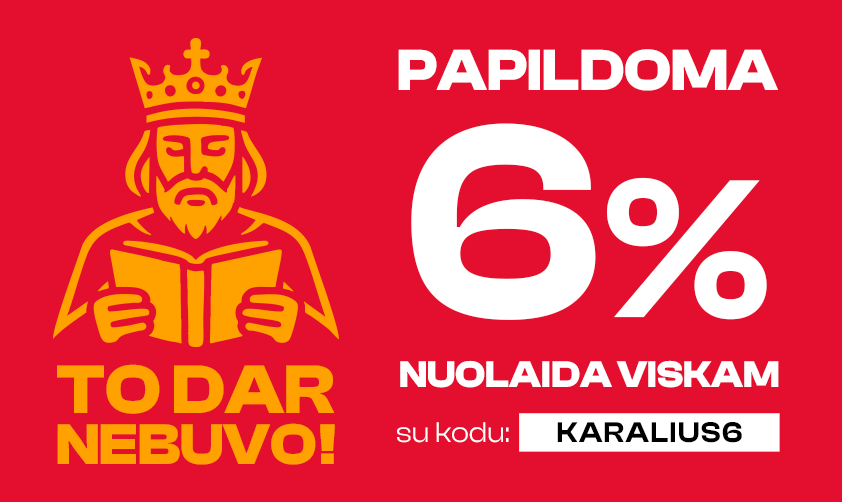
- Išsiųsime per 10–14 d.d.
- Autorius: Jorge Marcos Ramos
- Leidėjas: Kluwer Law International
- Metai: 2020
- Puslapiai: 360
- ISBN-10: 9403520302
- ISBN-13: 9789403520308
- Formatas: 15.8 x 24.6 x 2.5 cm, kieti viršeliai
- Kalba: Anglų
- Extra -15 % nuolaida šiai knygai su kodu: ENG15
Atsiliepimai
Aprašymas
How does it come about that a certain firm dominates a market? Can an understanding of this process lead to a more effective enforcement of competition law? That is the question approached in this compelling book. The author reviews the European Union's (EU's) Article 102 case law, comparing it with United States (US) provisions, demonstrating that new ways of looking at market power are needed - today's tech giants differ from older monopolies. He clarifies the role of dominant firms in the competitive process, proposing that conduct should be scrutinized differently depending on the source of market power, rather than using the same approach for all dominant undertakings.
Supporting his contention that the legal consequences that derive from holding a dominant position cannot be disassociated from the sources of that market power--that a dynamic understanding of dominance requires looking both forwards and backwards in time--the author examines such sources of dominance as the following:
‒ statutory dominance derived from explicit protectionist measures or subtler geoeconomic strategies;
‒ legacy firms such as the telecommunications or transport industries;
‒ natural monopolies, e.g., the exploitation of a mine;
‒ investment efforts undertaken in a competitive environment;
‒ intangible resources such as timing, reputation, experience, innovation capabilities, or managerial processes;
‒ lucky monopolies; and
‒ anticompetitive behavior on the road to dominance.
Drawing insights from EU and US case law, industrial organization scholarship, and strategic management literature, the book resolves questions related to the role that the origins of market power have played and should play in the enforcement of EU competition rules against dominant firms. It concludes with a list of policy recommendations bringing the application of Article 102 TFEU against dominant firms more in line with the objective of protecting the competitive process.
With its focus on how EU competition law enforcement should be fine-tuned to adequately incorporate the origins of firm dominance into the analysis of single-firm behavior, the book makes a major contribution to the analysis of anticompetitive effects. Practitioners, competition authorities, and academics in competition law will greatly appreciate the book's combination of legal analysis and recommendations for policy reform.
EXTRA 15 % nuolaida
Kupono kodas: ENG15
Akcija baigiasi už 22:14:39
Nuolaidos kodas galioja perkant nuo 10 €. Nuolaidos nesumuojamos.

- Autorius: Jorge Marcos Ramos
- Leidėjas: Kluwer Law International
- Metai: 2020
- Puslapiai: 360
- ISBN-10: 9403520302
- ISBN-13: 9789403520308
- Formatas: 15.8 x 24.6 x 2.5 cm, kieti viršeliai
- Kalba: Anglų
How does it come about that a certain firm dominates a market? Can an understanding of this process lead to a more effective enforcement of competition law? That is the question approached in this compelling book. The author reviews the European Union's (EU's) Article 102 case law, comparing it with United States (US) provisions, demonstrating that new ways of looking at market power are needed - today's tech giants differ from older monopolies. He clarifies the role of dominant firms in the competitive process, proposing that conduct should be scrutinized differently depending on the source of market power, rather than using the same approach for all dominant undertakings.
Supporting his contention that the legal consequences that derive from holding a dominant position cannot be disassociated from the sources of that market power--that a dynamic understanding of dominance requires looking both forwards and backwards in time--the author examines such sources of dominance as the following:
‒ statutory dominance derived from explicit protectionist measures or subtler geoeconomic strategies;
‒ legacy firms such as the telecommunications or transport industries;
‒ natural monopolies, e.g., the exploitation of a mine;
‒ investment efforts undertaken in a competitive environment;
‒ intangible resources such as timing, reputation, experience, innovation capabilities, or managerial processes;
‒ lucky monopolies; and
‒ anticompetitive behavior on the road to dominance.
Drawing insights from EU and US case law, industrial organization scholarship, and strategic management literature, the book resolves questions related to the role that the origins of market power have played and should play in the enforcement of EU competition rules against dominant firms. It concludes with a list of policy recommendations bringing the application of Article 102 TFEU against dominant firms more in line with the objective of protecting the competitive process.
With its focus on how EU competition law enforcement should be fine-tuned to adequately incorporate the origins of firm dominance into the analysis of single-firm behavior, the book makes a major contribution to the analysis of anticompetitive effects. Practitioners, competition authorities, and academics in competition law will greatly appreciate the book's combination of legal analysis and recommendations for policy reform.





Atsiliepimai